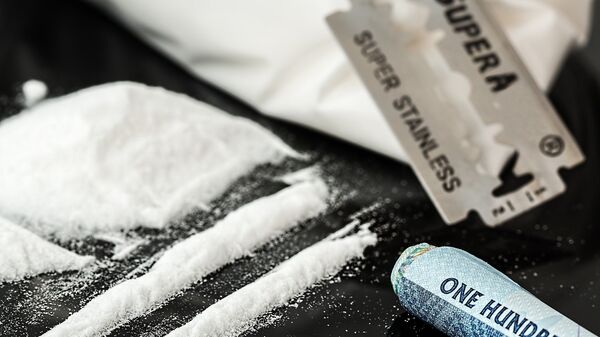National Records of Scotland started compiling such statistics in 1996 to try and quantify the extent of the drug misuse problems which have haunted Scotland for decades. Despite all the talk about a national health emergency during previous years and the promises of radical and appropriate action 1,264 Scots died prematurely because of drug misuse in 2019 and all the indicators are that 2020 will be even worse. The First Minister felt compelled to apologise for letting Scotland down during First Ministers Questions today but her words will be empty if coordinated actions don’t follow.
The need for a new, radical, and multi-faceted approach to the drug problem in Scotland is urgent and long overdue. The treatment and rehabilitation services are under-resourced and not readily available across the country. The persistence of a criminal justice approach instead of a public health approach at a UK level is political negligence bordering on criminality. Prohibition philosophy is the beating heart of the problem and offers no solution whatsoever. Politicians moralising about other citizens consuming drugs classified as illegal like cannabis or cocaine while they consume alcohol in copious amounts reflects a hypocrisy which pollutes the whole situation. The fact drugs legislation has not been devolved to Scotland is a disgrace and an independent Scotland would surely deal with the problem as a health one primarily, not a criminal one but in the meantime, action must be taken that can address the reality that exists now and save lives.
Record Drugs Deaths but Outrage Muted – It is Poor People Who Are Dying
In 2018 the number of drug related deaths in Scotland reached a record number of 1,187. Calls for radical action and changes to the drug laws even permeated the mainstream media. That figure has now been surpassed and the 1,264 deaths reported on Tuesday represents a massive and tragic failure of public policy. Make no mistake about it if these deaths were from the leafy middle-class suburbs of Scotland all hands would be on deck and the national health emergency tag would mean something. But the truth is most of these deaths are working class souls from the most deprived and poverty-stricken parts of the country and the attitude of many in power, particularly at Westminster, is ‘serves them right’. The privileged snobs at the top of society have simply no understanding of the factors, complex but mostly poverty related, which lead people into a life of injecting drug addiction. Their lack of understanding feeds their absence of genuine care or compassion.
Peter Krykant – A Man of Courage, Compassion and Action
I interviewed Peter Krykant on my Sputnik podcast yesterday. He explained how his early life of neglect and child abuse led him into the darkness of drug misuse and addiction. Raised in a household with and abusive stepfather Peter was consuming alcohol from the age of six and smoking cannabis by the age of twelve. He felt unsafe in his family home and fled at an early age, becoming hooked on heroin at the age of seventeen; and finding himself living on the streets of Birmingham begging for food and money to feed his drug habit by the age of twenty. He almost died from an overdose, but someone administered the drug naloxone and saved his life. He dug deep and re-built his life. He is now back in his native Scotland married to a Glasgow University professor with two wonderful children aged nine and five. He has accumulated huge lived experience of drug addiction during his forty-three years and is now determined to help address Scotland’s shameful drug abuse problems.
Peter argues passionately for proper and sustained funding of frontline drugs and alcohol services but an issue he has particularly focused on is that of safe consumption spaces, or Drug Consumption Rooms (DRG). Such facilities provide a safe place for drug injecting addicts to inject with clean needles in an environment which is not judgmental but offers support and advice. Instead of shooting up in alleyways, abandoned carparks or other public places and using shared and dangerous needles and other equipment addicts are kept alive and supported. Such facilities now exist in over 70 cities across the world and all the credible research shows without contradiction that they contribute to reduced crime, reduced public nuisance, and reduced deaths:
“The evidence for DCRs outside the UK has shown they reduce overdose deaths, improve access to other forms of health care, and reduce unsafe drug use behaviours (Irvine et al., 2019; Kennedy et al., 2017; Pardo et al., 2018; Tyndall, 2003)”.
In April 2018, the Scottish Parliament debated the specific issue of Glasgow City Council’s plan to open a safe injecting facility in the city centre of Glasgow, a city with over 13,600 problem drug users and more addicts than anywhere in Europe. With a backdrop of increased drug related deaths, the Parliament listened to the experts and front-line service groups who demanded such a facility. Drugs policy advisers to the UK government also voiced their support for such a measure and all the parties in the Parliament, apart from the Tories, backed the motion, by 79 votes to 27. The SNP Public Health Minister at the time, Aileen Campbell, responded to continued Tory opposition in Scotland and Westminster by saying:
"All of this leaves me wondering just how much more evidence in support of these facilities does the Westminster government require before it will act?
"How many more people will need to die before they agree that these facilities could save lives?
"There are safe consumption rooms in more than 70 cities around the world but not one in the UK. That is a position that is no longer tenable".
Human Beings Die Needlessly While Politicians Squabble Over Legalities
Two years and eight months later Westminster has refused to devolve drug powers to Scotland or amend the out-dated and ridiculous fifty-year-old Misuse of Drug Act (1971). Scotland’s Law chief, the Lord Advocate, advised that such safe drug consumption facilities could be deemed illegal. An impasse exists. The Scottish Parliament and Glasgow City Council agree such a facility is urgent, necessary and will save lives, but Westminster will not grant legal permission. Several thousand more injecting drug users have died while legal niceties are debated.
Peter Krykant refused to wait for politicians to act. He converted a minibus into a mobile safe consumption space and takes it weekly to Glasgow and allows addicts to use it to inject safely with clean needles and with access to support and advice. Many politicians and the wider drugs support community applaud his efforts over the last three months. He is showing concretely that actions speak louder than words. Nearby businesses offer support and donations to allow Peter to distribute gloves and hats to users enduring poor weather in Glasgow. Police monitor the facility, but no social disorder is reported and instead of injecting in public spaces addicts are able to inject privately and safely. Peter knew he was risking criminality given the grey area which exists under the current law, but it was a risk he was willing to take. In late October he was formally charged by Police Scotland.
Peter was offered a fine to avoid a court case but honourably declined to force the authorities to take him to court and explain which law he has broken in providing a confined safe and clean space which saves the lives of injecting drug users. Peter is not charging for this service he is merely leading by example and showing the politicians in Scotland what must be done. The farcical nature of the criminal charge levelled against Peter is highlighted by the fact Scotland’s Justice Minister Humza Yousaf, the man responsible for the criminal justice system in Scotland, has publicly defended his actions and stated in relation to the criminal caution and charge:
“…I strongly believe that Mr Krykant, who has been an activist on these issues for many years, should not be put in a position in which he feels that he has to break the law in order to help some of the most vulnerable people in Scottish communities to stay alive.
“…I call again on the UK government either to change the 1971 act so that we can have overdose prevention facilities in Scotland — again, I stress, in a regulated manner — or, if it will not do so, to devolve the power to Scotland so that we can make the change in order to bring forward those facilities” https://www.scottishlegal.com/article/yousaf-defends-campaigner-charged-for-operating-drugs-consumption-van.
We Need Independence but We Also Need Action Now to Save Lives
Of course, the issue should be devolved and of course Scotland would deal more humanely with the problem if we were an independent nation, but leadership and action is needed now. Instead of Peter Krykant confronting these stupid legal constraints and the cold indifference of the Westminster Tories the Scottish Government and Glasgow City Council should stand up and be counted. The Scottish Government should issue instructions to Scotland’s biggest local authority to go ahead and open the planned safe consumption facility and prevent the needless loss of more lives. Remember every single one of the 1,264 human beings recorded in the National Records of Scotland report is a son, a daughter, a father, a mother, a brother, a sister, a friend of someone. Drug addiction is a curse which can afflict anyone. It should not be a life sentence.
19 Years Ago the Parliament Debated Drugs Misuse - Too little has Changed
Nineteen years ago, the Scottish Parliament debated the Social Justice Committee’s Drug Misuse and Deprived Communities Report. The clear and unequivocal message, central to the detailed report, was that drugs and problem drug use are integrally linked to poverty and deprivation. I said then and I repeat now what we need is not a futile, fruitless and fraudulent ‘war on drugs’ but a concentrated, determined and serious ‘war on poverty’ and on hypocrisy.
We must not waste any more time or tolerate any more needless loss of lives respecting Tory drugs policies and laws which are woefully unfit for purpose. We need independence but we also need the Scottish government to lead in this area now.


